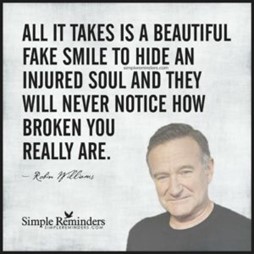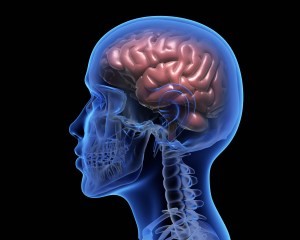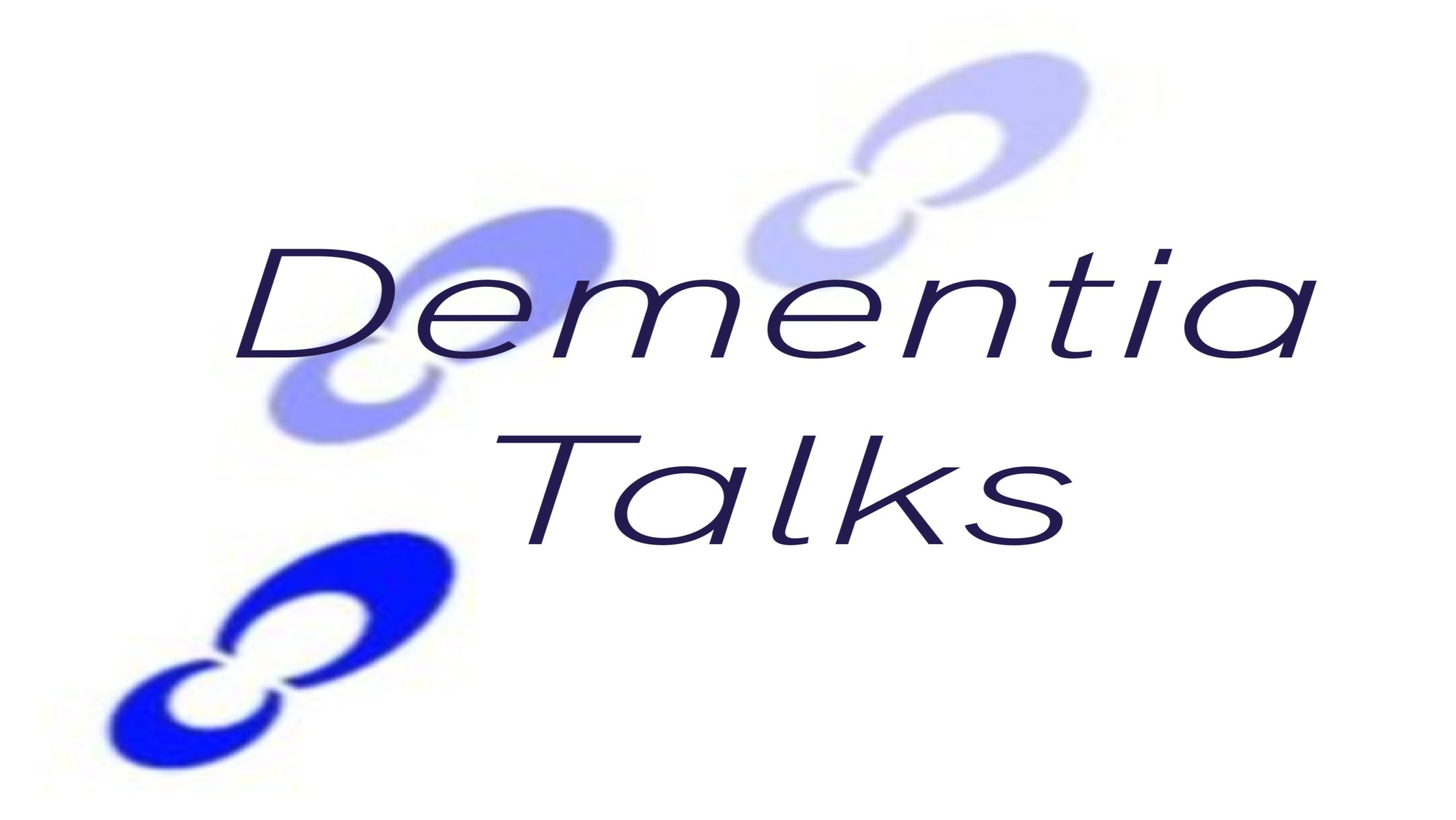10 Signs of Early Onset Dementia
YouTube Part 1
The early signs of dementia are very subtle and vague and may not be immediately obvious.
Looking back I can now see the subtle changes in my life that were the early signs of dementia.
Missing information from a meeting, forgetting I had a meeting, needing to take comprehensive notes for fear I would miss or forget something.

Forgetting conversations, or even forgetting my strokes in golf. The last one sounds even normal if you are a golfer, but I not only forgot the stroke I forgot even being in that part of the course. Fortunately, I had a couple of good golf buddies that helped me keep my score, and I finally turned it over to one of my friends, because I struggled so much to remember.
I can remember driving and coming out of the subdivision and stopping and not remembering even why I was where I was and where I was supposed to go right or left.
My driving became suspect, after I almost pulled out right into a pedestrian, not that they were walking in a walking zone, but I knew I should have seen them.
These are but a few of the self-doubts that I can remember before I was diagnosed with dementia. I couldn’t even put a name to what was going on with me, I knew I just wasn’t the same me that I used to be
Although the early signs of dementia vary, there are some common early symptoms.
If you have several of the warning signs of dementia, consult a doctor for a complete assessment. Emphasis on complete assessment.
Your doctor should use six to ten assessment tools to help to confirm or rule out a diagnosis of dementia.
Remember 7.7 million people are diagnosed with dementia this year alone, yet some people might resist going to the doctor for a medical assessment. Remember, you are not alone.
There are several strategies that can help to make this process easier.
- Early symptoms of dementia
- Ten warning signs of dementia
- Conditions with symptoms similar to dementia
The early signs of dementia are very subtle and vague and may not be immediately obvious. Early symptoms also depend on the type of dementia and vary a great deal from person to person.

Early symptoms of dementia
Although the early signs vary, common early symptoms of dementia include:
- memory problems, particularly remembering recent events
- increasing confusion
- reduced concentration
- personality or behavior changes
- apathy and withdrawal or depression
- loss of ability to do everyday tasks.
Sometimes, people cannot recognize that these symptoms show that something is wrong.
Too many people mistakenly assume that such behavior is a normal part of the ageing process. Symptoms may also develop gradually and go unnoticed for a long time. Also, some people may refuse to act, even when they know something is wrong.
This is such a loss because discovering early onset dementia, gives you a chance to get the right medication, make strategic changes in your life, put coping mechanisms in place and make financial changes.
I can’t emphasize enough the value of early diagnosis and its benefits.
Go through the following checklist of the common symptoms of dementia. If you or the person affected has several of these signs, consult a doctor for a complete assessment.
My Experience
Before I retired, I talked to my Primary Care Physician (PCP) about my feeling that several of these problems were happening to me.
At the time I had little to no information about dementia, I thought it was just something that affected old people in nursing homes, but the doctor put me on Aricept and we were supposed to follow-up within a year. Bad example of the limited approach of a PCP.
Unfortunately, the dosage of Aricept made little to no difference to me, because Aricept is predominantly used for Alzheimer’s. I didn’t even know what Aricept was use for.
But, after a year, I told my new Primary Care Physician that the medication doesn’t seem to work. So he decided that before he increased the dose, he wanted to make sure I had an MRI done of my brain.
It was then that we realized that the damage done to my brain was not consistent with Alzheimer’s.
Below is the information that is provided by the Alzheimer’s Association of the 10 warning signs. I have put a note following each one why I have issues with their list.
Ten warning signs of dementia

Link above
Go through the following checklist provided by the National Institute of Health of the common symptoms of dementia. If you or the person affected has several of these signs, consult a doctor for a complete assessment.
1 – Dementia and memory loss. It’s is normal to occasionally forget appointments and remember them later. A person with dementia may forget things more often or not remember them at all. Forgetting old memories can be a sign of Alzheimer’
2 – Dementia and difficulty with tasks. People can get distracted and they may forget to serve part of a meal. A person with dementia may have trouble with all the steps involved in preparing a meal.
3 – Dementia and disorientation. A person with dementia may have difficulty finding their way to a familiar place or feel confused about where they are, or think they are back in some previous time of their life.
4 – Dementia and language and communication problems. Everyone has trouble finding the right word sometimes, but a person with dementia may forget simple words or substitute inappropriate words, making sentences difficult to understand. They may also have trouble understanding others.
5 – Dementia and changes in abstract thinking. Managing finances can be difficult for anyone, but a person with dementia may have trouble knowing what the numbers mean or what to do with them.
6 – Dementia and poor judgement. Many activities require good judgement. When this ability is affected by dementia, the person may have difficulty making appropriate decisions, such as what to wear in cold weather.
7 – Dementia and poor spatial skills. A person with dementia may have difficulty judging distance or direction when driving a car.
8 – Dementia and misplacing things. Anyone can temporarily misplace a wallet or keys. A person with dementia may not know what the keys are for.
9 – Dementia and mood, personality or behavior changes. Everyone becomes sad or moody from time to time. Someone with dementia can have rapid mood swings, for no apparent reason. They can become confused, suspicious or withdrawn, angry or depressed. Some can become dis-inhibited or more outgoing.
10 – Dementia and loss of initiative. It is normal to tire of some activities. Dementia may cause a person to lose interest in previously enjoyed activities or require cues prompting them to become involved.
Conditions with symptoms similar to dementia
Remember that many conditions have symptoms similar to dementia, so it is important not to assume that someone has dementia just because some of the above symptoms are present. Strokes, depression, excessive long-term alcohol consumption, infections, hormonal disorders, nutritional deficiencies and brain tumors can all cause dementia-like symptoms. Many of these conditions can be treated.
Diagnosis of dementia
Do I Have Dementia – Part 2
Note: I have placed notes following the suggestions of the NIH and Alzheimer’s Association recommendations for Diagnosis of Dementia
The best place to start the diagnostic process is talking with the person’s local doctor PCP or a Cognitive Dementia and Memory Service (CDAMS) clinic (these must only be available in larger cities) about getting a diagnosis is critical at an early stage. Only a doctor can diagnose dementia and it should be a qualified neurologist preferably from a clinic or hospital that specializes in dementia, like Cleveland Clinic, Mayo, John Hopkins, New England School of Medicine, etc.
Note: A correct diagnosis of dementia at an early stage is important for early treatment, support and planning for the future. In Early onset dementia you will likely not show “demented” behavior.
A complete medical assessment may identify a treatable condition and make sure that it is treated correctly, or it may confirm the presence of dementia and whether it is Alzheimer’s disease or another type of dementia.

Note: a treatment plan is a combination of medications that are targeted at reducing the symptoms of dementia, and the related problems that come along with it, such as pain, depression and anxiety
Six types of assessment recommended by the Alzheimer’s Association can help to confirm or exclude a diagnosis of dementia.
Note: I strongly disagree with this recommendation. Having you PCP or and evaluation center provide these services is fine but most are not equipped to understand the results of the test.
Next the PCP or Evaluation Center should and can not mix other recommendations and other physicians should be involved and lead in the diagnosis.
We only obtained best results when you use a neurologist that is focused on dementia, not the standard neurologist that covers everything from MS to Botox treatments for migrants.
1 – Medical history
The doctor will ask about past and current medical problems, family medical history, any medications being taken and the problems with memory, thinking or behavior’s that are causing concern. The doctor may also wish to speak to a close family member who can help provide all the information.
Note: we all know the limitations of time that most doctors can spend with you because of insurance. So when you look at the information above think about whether the Primary Care Physician can really provide you the time you need to go over your medical history for the last 3 to 5 years.
2 – Physical examination
To help rule out other conditions, a physical examination may include tests of the senses, movement, and heart and lung function.
Note: the physical examination of your walking, gate and other telltale evidence of dementia, is far too often put off to other things such as problems with hip or back or knees, or worse lack of exercise etc. The presence of physical changes in someone that has dementia particularly at early onset is at best subtle, and most doctors think that you have to show some signs of being demented for them to classify it as dementia.
Laboratory tests
These will include a variety of blood and urine tests to identify any possible illness that could be responsible for the symptoms. In some cases, a small sample of spinal fluid may be collected for testing.
Note: Blood test and urine test are fine and we should look at finding out if there are other diseases causing dementia like problems. But dementia is not something that shows up in lab results.
Cognitive testing
A variety of tests are used to assess thinking abilities, including memory, language, attention and problem-solving. This can help identify specific problem areas, which helps identify the underlying cause or the type of dementia.
Note: this is another area that a Primary Care Physician or evaluation center cannot comprehensively do. I struggle to imagine a Primary Care Physician spending three and a half hours (3.5 hours) going through a comprehensive cognitive test with you.
1 – They do not have the resources
2 – We do not train them to conduct these kind test or interpret these type of test
3 – Insurance is not necessarily going to reimburse PCP or Evaluation Centers for the test, or worse, later when a qualified Neurologist wants to give you the test, insurance will deny it because another doctor has already given it.
Other clinics will not respect A diagnosis by a Primary Care Physician or Evaluation Center.

5 – Brain imaging.
There are certain scans that look at the structure of the brain and are used to rule out brain tumors or blood clots in the brain as the reason for symptoms.
Some scans can also detect patterns of brain tissue loss that can differentiate between different types of dementia. Other types of scans look at how active certain parts of the brain are and can also help determine the type of dementia.
Note: this is one that is particularly not suited for a Primary Care Physician, and should only be a referral point to a qualified neurologist at a Clinic, like Mayo or Cleveland Clinic. Most of what a Primary Care Physician could make from MRI is what the radiologist reports on the MRI. Last, MRIs that are used for evaluating brain scans need to be done with the latest type of MRI machines. MRIs machines at local hospitals, etc. that are used for soft tissue injuries, broken legs, broken wrist etc. are not adequate for proper brain scans and are at least three generations behind.
6 – Psychiatric assessment
Psychiatric assessment helps to identify treatable disorders, such as depression and to manage any psychiatric symptoms, such as anxiety or delusions that may occur along with dementia.
Note: a psychiatric evaluation may discover things like clinical depression, anxiety and other psychiatric problems, but they are not trained to deal with the neurological source of the problem.
7 – Talking with a doctor
After considering the person’s symptoms and ordering screening tests, the doctor may offer a preliminary diagnosis or refer the person to a Cognitive Dementia and Memory Service (CDAMS) clinic, neurologist, geriatrician or psychiatrist.
Note: getting any kind of diagnosis from a Primary Care Physician or Evaluation Service, is premature. A qualified neurologist who is backed by a team who can make the diagnosis should do all the testing.
Some people may be resistant to the idea of visiting a doctor. Sometimes, people do not realize, or else they deny, that there is anything wrong with them. This can be due to the brain changes of dementia that interfere with the ability to recognize or appreciate the changes occurring. Others have an insight of the changes, but may be afraid of having their fears confirmed.
Note: this is an area that I frankly blame the medical field and worse the Alzheimer’s Association. Too many people think that Alzheimer’s is the only form of dementia, and that Alzheimer’s only happens to all people. And the real focus of the Alzheimer’s Association or any care giving is focused on the caregiver not the patient.
Note: The Alzheimer’s Association recommends the following if you think a loved one is suffering from cognitive problems, and you cannot get them to see a doctor. If this is the focus of the type of person who you’re trying to get to see the doctor then chances are that’s probably too late for them because they are in the later stages of dementia and you waited too long.
If you have someone who is in the early stages trickery is not the answer. The answer is education and awareness of what dementia really is and that is not all Alzheimer’s and that you can have a fruitful life still with having dementia.
One of the most effective ways to overcome this problem is to find another reason for a visit to the doctor. Perhaps suggest a check-up for a symptom that the person is willing to acknowledge, such as blood pressure, or suggest a review of a long-term condition or medication.
Another way is to suggest that it is time for both of you to have a physical check-up. Any expressed anxiety by the person is an excellent opportunity to suggest a visit to the doctor. Be sure to provide a lot of reassurance. A calm, caring attitude at this time can help overcome the person’s very real worries and fears.
Information below is again focused in the wrong direction. It is caregiver focus which is one of the problems I have with Alzheimer’s Association. Alzheimer’s Association should be focusing on early diagnosis and treatment, not just helping the caregiver get by.
Sometimes, your friend or family member may refuse to visit the doctor to ask about their symptoms. You can take a number of actions to get support including:
talking with other people who may have had to deal with similar situations
contacting your local Aged Care Assessment Team (ACAT)
calling the National Dementia Helpline.
Where to get help
Your GP (doctor)
Your local community Alzheimer’s health center
National Dementia Helpline,
In Closing
Discovering if you have early onset dementia is not a direct medical process. First, you are probably the first to notice the differences in you. After that working with the medical field to determine if you have cognitive or other challenges is not well understood at the GP or PCP level physician.
Last, it takes a series of tests to determine if you have




No Comments